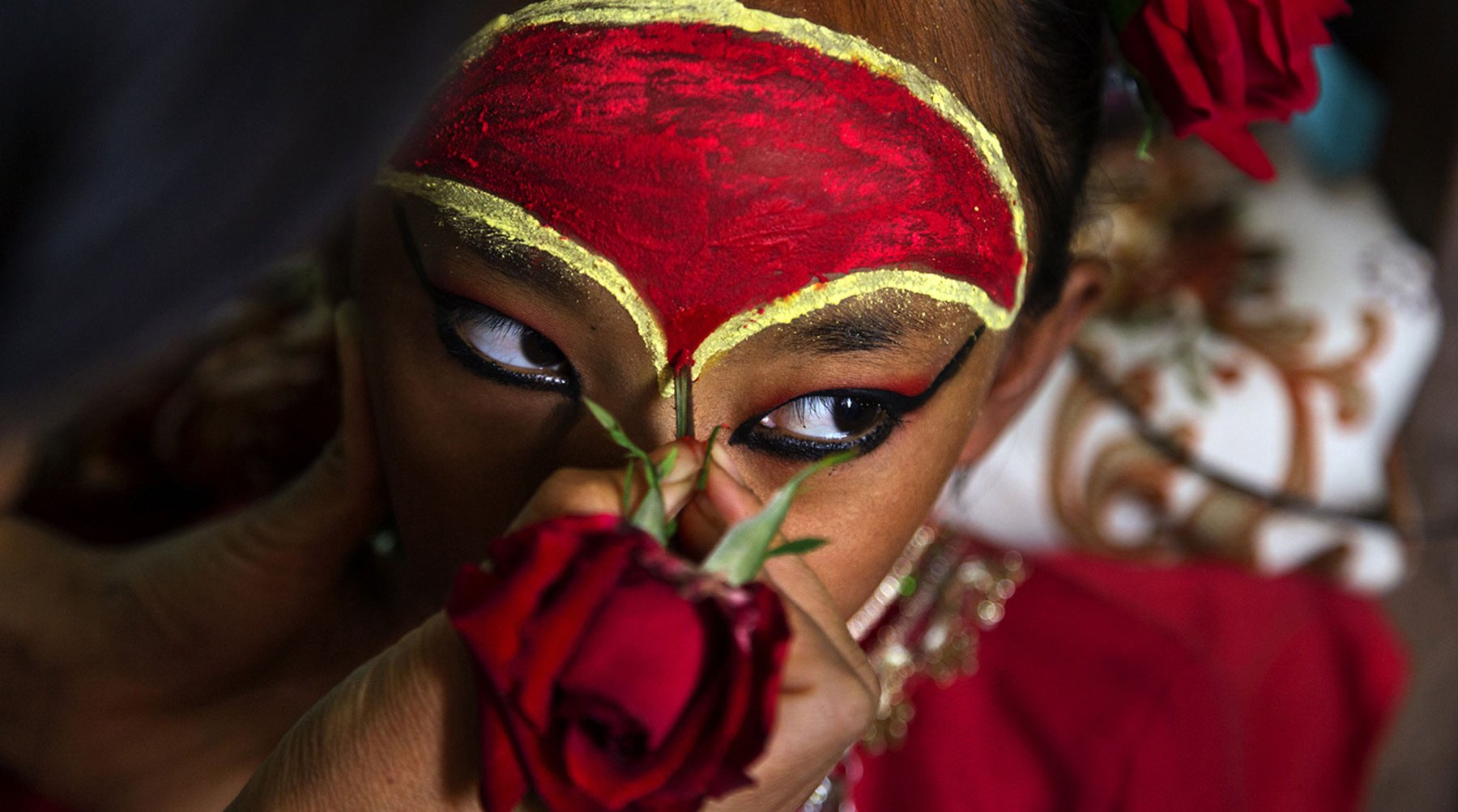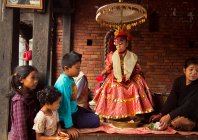
Nepal’s Living Goddesses
Stephanie Sinclair
National Geographic Magazine
In Nepal, prepubescent Newari girls known as Kumaris are worshipped as deities. They are said to be endowed with foreknowledge, able to cure the sick, grant wishes and bestow blessings of protection and prosperity. They are the link between Earth and the realm of the divine; most importantly they generate Maitri Bhavana, a spirit of love and kindness to all, felt by their devotees.
Today there are only ten Kumaris in Nepal, with nine in the Kathmandu Valley. According to tradition, they are selected from families with links to certain bahals or courtyard communities, and are from a high caste. It is a supreme honor to be chosen as a Kumari, an honor that bestows countless blessings on the Kumari’s family. Despite the financial burden and personal sacrifices required to maintain a girl as a living goddess, as well as the challenges of rehabilitation when she reaches puberty and has to lead a normal life, some families are still willing to put their daughters forward for selection.
A Kumari is an onerous responsibility for all concerned, particularly for the family breadwinner. She wears special clothes and make‑up, every day, with new festive dresses made of expensive cloth at least twice a year. A room in the family home, a precious commodity in an overcrowded city, is set aside for Puja (worship); here the goddess sits on her throne and has audiences with her devotees. The family performs Nitya Puja, ritual worship, every morning.
Preview






The Kumari only ever goes outside for special festivals when she is carried, in a person’s arms or in a palanquin, her feet never touching the ground; she has a special diet and certain foods (e.g. hen’s eggs and chicken) are taboo; everything in the house is kept pure according to ritual; no one near her can wear leather; and, most importantly, the Kumari must not bleed. It is believed that Shakti, the spirit of the goddess that enters the girl’s body when she becomes a Kumari, will leave her if she loses blood. Even an accidental graze may put an end to the reign which always ends when she begins to menstruate.
Despite the many challenges, most former Kumaris speak fondly of the experience. Chanira Vajracharya, now 19 and studying for a bachelor’s degree in business administration, explained: “Being a Kumari is a gift. I feel blessed that I was chosen... Still, as society evolves, so must the tradition. There are things that should be improved for the welfare of Kumaris, such as better financial support from the government to cover the expense of rituals and the education of the goddess, and also counseling to explain how her life will change when she is no longer a Kumari. I’d like to see a support network of former Kumaris helping those who have just been dismissed. I’m worried that if we don’t see these changes, we may lose the tradition altogether.”
Stephanie Sinclair






